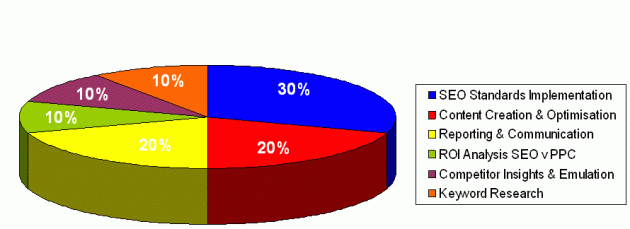Happy Pitch-mass
December 31, 2008 Leave a comment
How to isolate yourself from customers with a Christmas Card
In the last week of December I received 40 or so Christmas e-cards from companies I had dealings with in 2008. Most were amusing or bland but one stuck out.
The memorable greeting came from an SEO company where I occasionally speak to their Managing Director.
The unnamed company sent me an e-card that was little more than a flyer for their services and a list of their products, tagged with Happy Christmas at the top.
Apart from the debatable ethics of a business contact feeding my email address into his CRM, the e-card touted a number of services my team offers and thanked me for my good custom in 2008.
Since I’ve never bought from this SEO and indeed we compete in some areas, this message was wholly irrelevant. Moreover I consider it fairly impolite to send customers a sales flyer disguised as a Christmas card.
Issues of taste aside, this SEO companies approach was a lose/lose method of doing business.
If I’m a valued customer this is a crude and impersonal messaging that suggests I’ve been blended with cold sales leads, or worse, my relationship is of little importance.
If I’m a cold sales lead I feel no warmer from such an untargeted spammy sales message.
If I’m a business contact or competitor I get an understanding of how nascent my associate/competitors CRM capabilities are.
It’s easy to criticize so I should state my approach, by no means a perfect example, but more respectful:
I avoid Christmas giving as not all my clients are Christian or in Christian countries, I’ll face to face/verbally wish people a happy holidays as relevant. Crunch or no crunch my clients get something (Sarbanes-Oxley compliant) they can enjoy as a New Year Thank-you for the year past.
I send a Happy New Year present such as Champagne, Port, Dinner and Cinema tickets, an iTunes or Starbucks credit, accompanied by an unhurried handwritten Thank You card from me. It takes ages, literally several evenings but my client took hours or days to select my company’s services, the least I can do is spend a few minutes writing a card to say thanks.
Legal restrictions stop me giving anything more generous but it’s a personal touch and I remove my sales head well before I start writing Thank You cards. One thing is for sure, clients do not get a sales brochure disguised as a Christmas Card.
Regardless of my tastes, the net result of sending a heavily sales focused Christmas e-card is that I’ve gone from respecting this unnamed SEO Company to doubting their ability to segment a customer base, deliver relevant messages or understand how to sell. Generally my clients are not receptive to a big ticket sales message in the last week of December; I doubt many of their clients were either.
Considering SEO is all about relevance and appropriateness, this SEO companies 2008 Christmas card just lost them any business I could put their way in 2009.
If the troops at the Somme could take a day out of a war and respect Christmas, there is no reason SEO providers and Digital Agencies cannot do the same in a recession.
